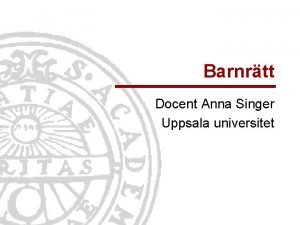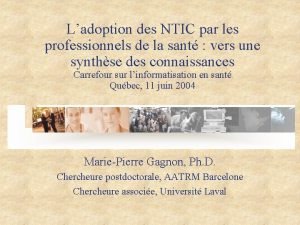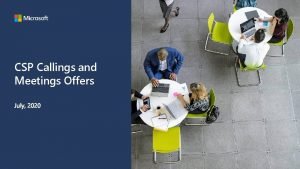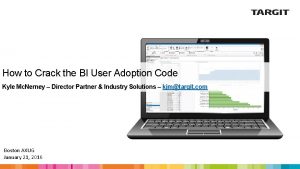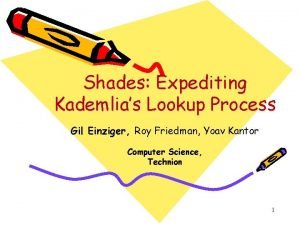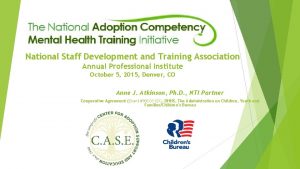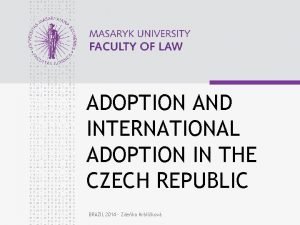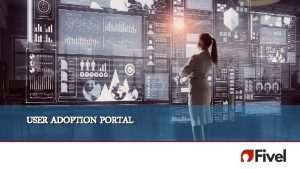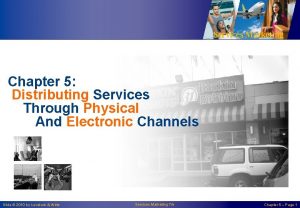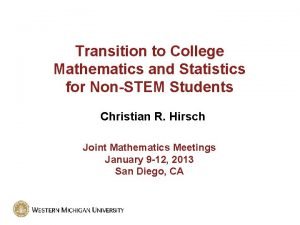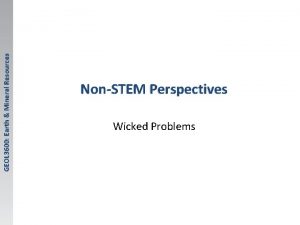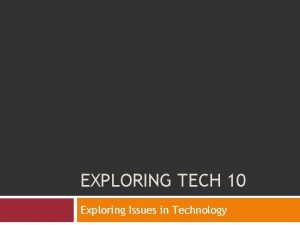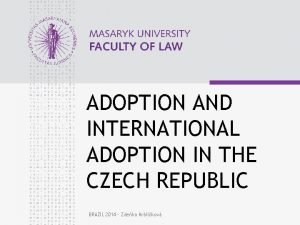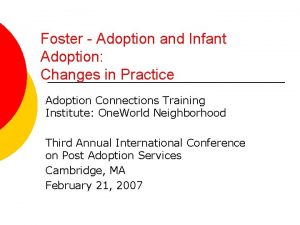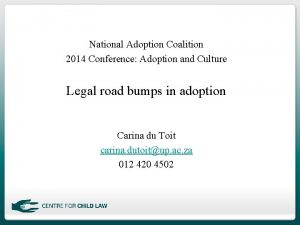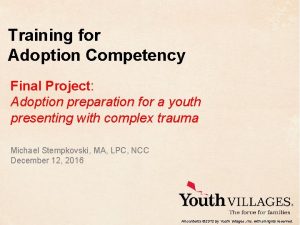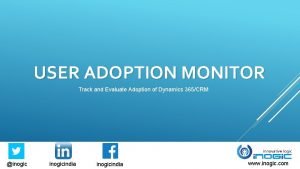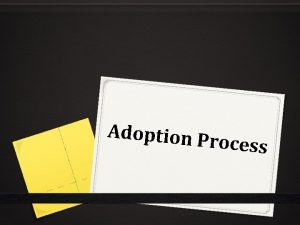Exploring the adoption of gamingmaking technologies in nonSTEM






















- Slides: 22

‘Exploring the adoption of gaming-making technologies in non-STEM classrooms, with children with special educational needs and disabilities’ Jamie Tinney, Dr Helen Boulton, Prof David Brown, Dr Andrew Burton, Dr Thomas Hughes-Roberts & Nicholas Shopland (Nottingham Trent University) Dom Martinovs (Game. City)

The three strands to this research Digital gamemaking Pupils with SEN/D Non-STEM subject teaching Game making mechanics and dynamics Range of pupils with differing needs In classes that aren’t necessarily STEM Gamification / engagement Pupils sometimes excluded from classroom learning Coding supported by nonspecialist teachers Promote better pupil outcomes and progress Design learning for accessibility

What is Pocket Code? Available for free on the Google Play Store No i. OS or Windows version yet

Partners Project has received funding from the European Union’s Horizon 2020 research and innovations programme Involves pilots in 3 countries (UK, Austria and Spain) Aimed at a different group of pupils who are at risk of educational exclusion Additional partners from the gaming and interactive media industry

Schools in the pilots in three countries • Graz University of Technology (TU Graz) –Girls (three schools) • Universidad Politécnica de Madrid (UPM) –Children from immigrant families (two schools) • Nottingham Trent University (NTU) –Children with special educational needs and/or disabilities (three schools) Additional partners from the gaming and interactive media industry

Participants in the Nottingham feasibility pilot Special School Primary School Secondary School Years 9 -13 Children with profound and multiple learning needs and disabilities 15 pupils Life skills / life after school Year 5 High number of children with SEN/D 30 pupils History and Science Year 8 and 9 Classes with many children with SEN/D 60 pupils Science and RE

Set up of the feasibility trial The Preparatory Cycle Initial set-up, identifying technical requirements, analysis of conditions in schools, design of gaming-based templates or modules, collection of schools/teachers/students’ needs and preferences … includes the feasibility pilot Classes will build familiarity with Pocket Code and teachers and students will start to apply game design elements to their learning in selected curricula Begin to understand how to measure effectiveness of Pocket Code

Theoretical underpinning Educational aim of this research project Find out what impact the intervention has on pupil attainment and engagement. A key hypothesis of the project was that pupils with special educational needs and/or disabilities (SEND) in, for example, a Science classroom will be more engaged in learning and achieve better academic results because they will make a science-themed game on the Pocket Code application on their tablet (De Freitas, 2006).

Theoretical underpinning Learners playing and making educational games James Paul Gee wrote about the power of educational gaming as a tool for learning. A digital environment, in which learners solve problems and acquire new knowledge and skills beyond the confines of the game. Gee (2003)

Theoretical underpinning Value of educational games as games Bellotti et al describes “inadequate game design principles” of previous attempts at educational games, preferring to see designers working with educators at creating games. Bellotti et al (2011) A lack of integration of learning and enjoyment. Current attempts are “limiting the effectiveness of digital games for learning” put down to inadequate understanding that educational games should be fun to encourage better engagement. Breuer, et al (2010)

Theoretical underpinning Educational games on mobile phones Effects from playing on engagement, motivation and learning Higher scores in knowledge tests than those who learned the topic in the more usual project -based lesson Information, via the game, was more realistic and therefore memorable to the children No differences in motivational levels by playing the game A lack of research on children’s learning or engagement by making their own digital games Huizenga et al (2009)

Theoretical underpinning Learners considered ‘at risk’ of exclusion from more traditional teaching methods may benefit from learning via digital games Children who are disengaged from school, showed increased interest in taking part in learning activities that integrated games, resulting in better cognitive learning outcomes and a more positive attitude to the topic studied Schmitz et al (2014) Not all SEN/D participants actually learned subject content from digital gaming, noting that participants felt overwhelmed by the complicated interface in the games. Ke and Abras (2013)

Theoretical underpinning The teacher’s role is in supporting learners to make best use of technology Teachers prepare resources, learn the tools themselves, know what to look for, are quick to respond and know how to help their pupils to achieve more and learn more. Robertson and Howells (2008) Use of new technologies might only goes as far as maintaining normal teaching practices, rather than to challenge the methods of teaching and learning to, say, a more constructivist pedagogical approach. Smeets (2005)

What we learned from the feasibility trial • Technical requirements –Organisational – charging, updating apps, uploading and sharing games • Collection of schools, teachers and pupils needs and preferences –Training & support - Teacher training sessions and in-class support –Coding terminology and operations used –Accessibility – language, sequences, button pressing and handling • Developing teaching guides and learning activities –To fit in with curriculum topics and planned learning outcomes –Modifying the ‘normal’ lesson to incorporate game-making –Time spent learning to code (time lost learning the subject) • Methods for collecting impact data –Assessment of curriculum knowledge –Development of data collection methods, observations and in-app analytics

Recommendations from the feasibility pilot • Development of detailed and interactive teacher’s guide • Developing teachers’ platform to manage class • Development of in-app analytics usefulness and reporting back • Develop the app to be more inclusive (Cloud-based modification overlay for a personalised interface) • Develop functionality of the ‘bricks’ in Pocket Code • Decide on and test hypothesis for the full pilot study

Example of Pocket Card: Controlling an object with your phone’s sensors https: //share. catrob. at/pocketcode/help

All suggested hypotheses for the next pilot phase (September 2016 – June 2017) H 1: A new generation of pocket code will incentivise learning beyond a typical classroom experience. H 2: A new generation of pocket code will increase instances of collaboration in problem solving activities. H 3: A new generation of pocket code will increase the level of cognitive ability among learners. H 4: Player types will influence students’ approach to game creation. H 5: A new generation of pocket code will increase engagement with learning material through game making. H 6: A new generation of pocket code will increase learner independence and decrease teacher assistance. H 7: A new generation of pocket code will improve the persistence and achievement of learners.

How the hypotheses are to be measured* Hypothesis H 1 Pre-Test School measures dealing with subject knowledge H 3 10 question set of computational thinking puzzles Standardised critical thinking test H 4 Player roles survey Hypothesis Measure H 2, H 5 and H 6 Observation tool H 7 Post-Test Continued use of pre-derived school tests at fixed intervals and in post. The same set of 10 questions administered again Same standardised test None Frequency At least once per week in both intervention and control Number of systems in each Log of instances and teacher online school (e. g. time-out) blog/diary In order to assess learner achievement, Goal Attainment Scaling (GAS) will be utilised to provide a consistent measure across the diverse students’ groups in each test centre. *Being trialled now, and might change slightly

Computational thinking - example Hypothesis 3: A new generation of pocket code will increase the level of cognitive ability among learners. Computational thinking will be assessed through pre and post-test measures made up of small visual tests aimed at assessing core computational thinking concepts including: abstraction, algorithmic thinking, decomposition and generalisation.

Further information No One left Behind project site • http: //no 1 leftbehind. eu/ Teaching resources • https: //edu. catrob. at/

Time to play and any questions • Pocket Code app on Google Play • In app – Explore • Search ‘ 8310’ • Download Puzzle Game - Work and Life Skills • Open and Play jamie. tinney@ntu. ac. uk http: //no 1 leftbehind. eu/

References and links • Bellotti, F. et al. , 2011. Designing serious games for education: from pedagogical principles to game mechanisms. In: Proceedings of the 5 th European Conference on Games Based Learning. University of Athens, Greece, pp. 26 -34. • Breuer, J. S. and Bente, G. , 2010. Why so serious? On the relation of serious games and learning. Eludamos. Journal for Computer Game Culture, 4(1), pp. 7 -24. • De Freitas, S. , 2006. Learning in immersive worlds. London: Joint Information Systems Committee. • Gee, J. P. , 2003. What video games have to teach us about learning and literacy. Computers in Entertainment (CIE), 1 (1), 20 -20. • Ke, F. and Abras, T. , 2013. Games for engaged learning of middle school children with special learning needs. British Journal of Educational Technology, 44(2), pp. 225 -242. • Robertson, J. and Howells, C. , 2008. Computer game design: Opportunities for successful learning. Computers & Education, 50(2), pp. 559 -578. • Schmitz, B. et al. , 2014. The impact of coupled games on the learning experience of learners at-risk: An empirical study. Pervasive and Mobile Computing, 14, 57 -65. • Smeets, E. , 2005. Does ICT contribute to powerful learning environments in primary education? . Computers & Education, 44(3), pp. 343 -355. • No One left Behind project site - http: //no 1 leftbehind. eu/
 Adoption
Adoption Anna singer adoption
Anna singer adoption Dogs trust rehoming questionnaire
Dogs trust rehoming questionnaire Closed adoption
Closed adoption Adoption flag
Adoption flag Nature and nurture
Nature and nurture Adoption neo pi 44
Adoption neo pi 44 Microsoft 365 business voice adoption promo
Microsoft 365 business voice adoption promo Bi user adoption
Bi user adoption 50 shades of gray wikipedia
50 shades of gray wikipedia Nti training adoption maryland
Nti training adoption maryland Adoption czech republic
Adoption czech republic Adoption plan template
Adoption plan template Open vs closed adoption
Open vs closed adoption User adoption portal
User adoption portal Adoption flag
Adoption flag Office 365 rollout and adoption workbook
Office 365 rollout and adoption workbook Adoption learning partners hague training
Adoption learning partners hague training Online booking tool adoption
Online booking tool adoption Estonia adoption
Estonia adoption Mcys adoption
Mcys adoption Forecasting the adoption of a new product
Forecasting the adoption of a new product Distributing services in service marketing
Distributing services in service marketing

